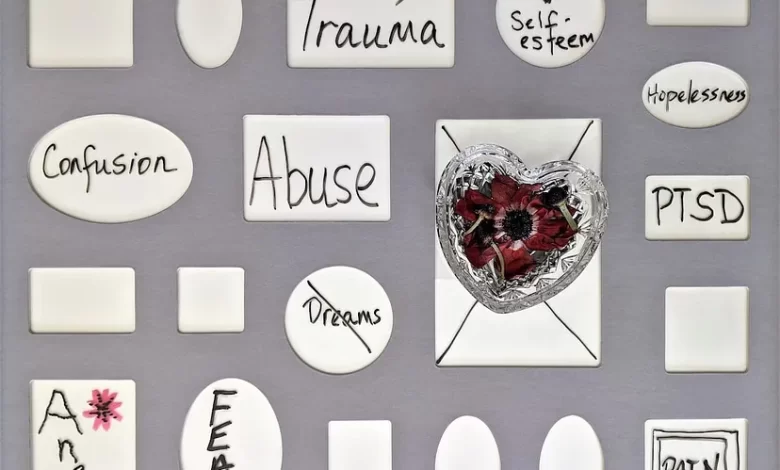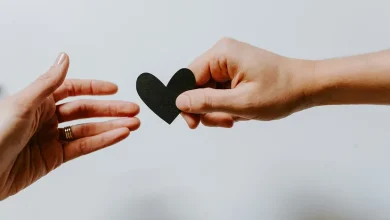Jumah Nugget: How To Relate With People Struggling With Drug and Substance Abuse
Dhun Nurayn El Shabazz

How To Relate With People Struggling With Drug and Substance Abuse
And help one another in righteousness and piety, but do not help one another in sin and transgression. And fear Allah, verily Allah is Severe in punishment — Quran 5[Al-Ma’idah]:2
I recently met an old-school friend who happens to be a medical professional. It’s been a very long time since we met so our social dynamics and realities have evolved. In the cause of our meeting, he pulled a “blunt” which he was trying to wrap, stuff, ignite, and inhale. Then he politely asked me if I was interested in smoking with him but I declined.
He then apologized for offering me because he said people often live two-faced lives. The public face which others celebrate and their private life which is obscure from the world. In this part of the world, smoking “joints” was considered to be a norm so he felt like I probably smoked but kept it secret. I was astonished by this phase of his life because back in our days in school, I never saw him smoking cigarettes not to talk of weed. This led me to dive into the conversation further enquiring about what led him to this ill fate.
My friend reminded me of how cool, calm, and collected he was back in the day. However, sometimes life throws us lemons and we don’t know how to make a lemonade out of it. For him, his life ordeals led him to substance abuse as an escape route. So whenever he’s high, he forgets all his life challenges and just uses the abuse as a coping mechanism against his reality. This was the beginning of my realization that we can’t tell what pain is behind those involved in this menace.
Why Resort to Drug and Substance Abuse?
Substance abuse involves the excessive intake of psychoactive drugs leading to addiction and adverse effects. This includes intoxicants, narcotics, prescriptions, or painkillers that help suppress a feeling temporarily as a coping mechanism. It often results in mental, physical, and psychological distress which is quite difficult to recover from.
The addictive aspect of it is very complex and occurs in multiple phases. Different factors could lead to this beyond just a personal choice. Let’s examine a few factors that make people become victims of drug and substance abuse:
- Biological Factors: A family history of substance abuse may increase individual susceptibility causing them to become chronic addicts. For example, a child who sees his father growing up smoking is more than likely going to try smoking himself. Also, excessive use of drugs can alter the brain’s neurotransmitter pathways leading to increased over-dependence on substances. Why are people addicted to coffee or caffeine in Coca-Cola?
- Economical Factors: There’s a high chance of violence, burglary, and substance abuse in downtrodden communities. People who grow up in societies with limited resources and opportunities can decide to turn to drugs as compensation for coping with the situation.
- Environmental Factors: Many victims of drug and substance abuse also turn out to have had traumatic experiences, negligence as a result of unsupervised parenting or influenced by peer pressure from adolescence.
- Psychological Factors: Mental health issues like grief, depression, sadness, and anxiety are a few causes for which people resort to substance overdose.
- Developmental Factors: Prolonged exposure to stress and unexpected life situations can contribute to substance abuse as individuals seek relief from overwhelming unpleasant emotions. If one isn’t mature enough to realize life isn’t a bed of roses, then one becomes vulnerable to the effects of addictive substances. The list is inexhaustible but let me truncate it here.
Is there any Islamic Remedy for this menace?
One of the intrinsic beauty of Islam is that it provides a solution to your problem right before it arises. In addition, unlike some faiths whose injunctions are theoretical. Islamic spirituality is a practical approach that you feel in both your body and soul if you practice the right way. Here are some Islamic principles that can serve as a remedy for drug and substance abuse:
- Awareness and Education: There’s a dire need to emphasize the importance of knowledge and education in making informed decisions. This includes understanding the harmful effects of drug and substance abuse. We often generalize that these people know what they’re doing, but this isn’t true in all situations. Allah says:
Say, ‘Are those who know equal to those who do not know?’ — Quran 39[Az-Zumar]:9
2. Counseling and Therapy: When we find people in this ugly state, let’s encourage them to seek professional counseling and therapy sessions. Our beloved Prophet Muhammad peace be upon him engaged in counseling on his personal affairs and also provided emotional support to his community when they needed him. Therapy isn’t a bad thing as we sometimes make it look. Let’s normalize seeking professional help, including Islamic counseling, to address the root causes of drug and substance abuse.
3. As-Solat — A Spiritual Connection: I can’t over-emphasize the importance of prayer, especially at its fixed stated times. It is the positive impact of regular prayer in fostering self-discipline and deterring immoral actions that helps you keep away from these ugly acts naturally. So if you wonder why these acts are disgusting to you, you’re probably blessed to be reaping the fruits of this beautiful act of worship.
“Recite what has been revealed to you of the book and perform As-Salat. Indeed, As-Salat — prayer prohibits immorality and wrongdoing…” — Quran 29[Al-Ankabut]:45
4. Abstinence: One of the reasons why Islam prohibits the consumption of intoxicants and substances is that it impairs your judgment. However, Islam emphasizes the importance of clarity of mind and consciousness. This is why initially before intoxicants were banned, Muslims were forbidden to go into prayer in a state of unconsciousness under the influence of substances.
O you who believe! Intoxicants (all kinds of alcoholic drinks), gambling, Al-Ansab, and Al-Azlam (arrows for seeking luck or decision) are an abomination of Shaitan’s (Satan) handiwork. So avoid (strictly all) that (abomination) in order that you may be successful. — Qur’an 5[Al-Ma’idah]:90
5. Repentance: Muslims need to be people who show empathy, and love and encourage each other to race towards forgiveness and repentance. A lot of us make the mistake of judging people in this scenario while forgetting this is a test for them from Allah. We need to encourage these individuals to turn back to Allah in repentance and seek forgiveness as part of the process of overcoming their challenges. Remind them that they have a Lord Who is Forgiving and Merciful.
And those who, when they have committed immorality or wronged themselves with evil, remember Allah and ask forgiveness for their sins; — and none can forgive sins but Allah — And do not persist in what (wrong) they have done, while they know. For such, the reward is Forgiveness from their Lord, and Gardens with rivers flowing underneath (Paradise), wherein they shall abide forever. How excellent is this reward for the doers (who do righteous deeds according to Allah’s Orders). — Qur’an 3[Al-’Imran]:135–136
These are just a few thoughts on the subject matter. We all have a role to play in building a substance-free society and helping those battling with addiction. I struggled to write this piece and I even had to ask myself what does this have to do with Islam. However, there are tons of Muslims battling with these issues and the sad reality is that they can’t find help and we don’t talk about them. We ask Allah to heal them and safeguard the rest of us. Amin!
PS: Success comes only by the will of Allah! If you find this piece beneficial, it’s by Allah’s Grace. It’s no scholarly work and we accept our mistakes. Suggestions are welcomed in making this effort better as well. You are free to share by any means for enlightenment purposes. Kindly give a “click-clap” to enable other readers on Medium to see this post. We ask Allah to keep us guided and steadfast upon the right path.
Yaumul Jumah 16th Jumadal Akhir 1445H // Friday 29th December 2024




